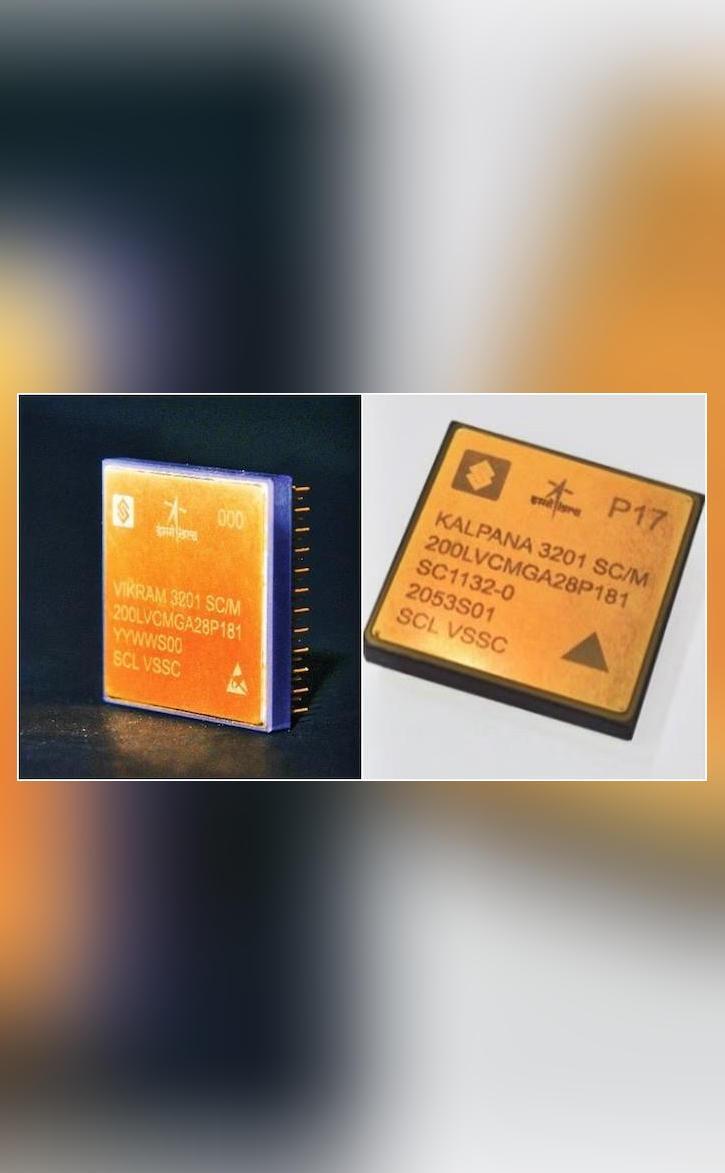
ISRO & SCL Develop 32-bit Microprocessors for Space Applications
The Indian Space Research Organisation (ISRO) and the Semiconductor Laboratory (SCL) in Chandigarh have made a significant breakthrough in the field of space technology by jointly developing two 32-bit microprocessors, VIKRAM3201 and KALPANA3201. These microprocessors have been designed specifically for space applications, and their development is a major step towards self-reliance in the area of space technology.
VIKRAM3201 is the first fully “Make-in-India” 32-bit microprocessor that has been qualified for use in the harsh environmental conditions of launch vehicles. This is a significant achievement, as it marks a major milestone in India’s journey towards becoming self-sufficient in the development of space technology.
The VIKRAM3201 microprocessor is a remarkable feat of engineering that has been designed to withstand the extreme temperatures, vibrations, and radiation that occur during launch and space travel. It is a testament to the ingenuity and expertise of the Indian space scientists and engineers who have worked tirelessly to develop this cutting-edge technology.
The KALPANA3201 microprocessor, on the other hand, is designed for use in spacecraft and satellites. It is a highly reliable and fault-tolerant processor that is capable of withstanding the extreme conditions of space travel. The KALPANA3201 microprocessor is designed to provide high-speed processing and data storage, making it an ideal choice for use in spacecraft and satellites.
The development of these microprocessors is a significant achievement for ISRO and SCL, as it marks a major step towards self-reliance in the area of space technology. In the past, India has relied heavily on foreign suppliers for the development of space technology, but the development of these microprocessors shows that India is capable of developing its own advanced technology.
The VIKRAM3201 microprocessor is a significant achievement because it is the first fully “Make-in-India” 32-bit microprocessor that has been qualified for use in launch vehicles. This is a major milestone in India’s journey towards becoming self-sufficient in the development of space technology.
The development of these microprocessors is also significant because it marks a major step towards the development of indigenous space technology. In the past, India has relied heavily on foreign suppliers for the development of space technology, but the development of these microprocessors shows that India is capable of developing its own advanced technology.
The KALPANA3201 microprocessor is designed for use in spacecraft and satellites. It is a highly reliable and fault-tolerant processor that is capable of withstanding the extreme conditions of space travel. The KALPANA3201 microprocessor is designed to provide high-speed processing and data storage, making it an ideal choice for use in spacecraft and satellites.
The development of these microprocessors is a significant achievement for ISRO and SCL, as it marks a major step towards self-reliance in the area of space technology. In the past, India has relied heavily on foreign suppliers for the development of space technology, but the development of these microprocessors shows that India is capable of developing its own advanced technology.
The VIKRAM3201 microprocessor is designed to operate in the harsh environmental conditions of launch vehicles, including extreme temperatures, vibrations, and radiation. It is a highly reliable and fault-tolerant processor that is capable of withstanding the extreme conditions of launch and space travel.
The KALPANA3201 microprocessor, on the other hand, is designed for use in spacecraft and satellites. It is a highly reliable and fault-tolerant processor that is capable of withstanding the extreme conditions of space travel. The KALPANA3201 microprocessor is designed to provide high-speed processing and data storage, making it an ideal choice for use in spacecraft and satellites.
The development of these microprocessors is a significant achievement for ISRO and SCL, as it marks a major step towards self-reliance in the area of space technology. In the past, India has relied heavily on foreign suppliers for the development of space technology, but the development of these microprocessors shows that India is capable of developing its own advanced technology.
The VIKRAM3201 microprocessor is a significant achievement because it is the first fully “Make-in-India” 32-bit microprocessor that has been qualified for use in launch vehicles. This is a major milestone in India’s journey towards becoming self-sufficient in the development of space technology.
The KALPANA3201 microprocessor is designed for use in spacecraft and satellites. It is a highly reliable and fault-tolerant processor that is capable of withstanding the extreme conditions of space travel. The KALPANA3201 microprocessor is designed to provide high-speed processing and data storage, making it an ideal choice for use in spacecraft and satellites.
The development of these microprocessors is a significant achievement for ISRO and SCL, as it marks a major step towards self-reliance in the area of space technology. In the past, India has relied heavily on foreign suppliers for the development of space technology, but the development of these microprocessors shows that India is capable of developing its own advanced technology.
Conclusion
The development of the VIKRAM3201 and KALPANA3201 microprocessors by ISRO and SCL is a significant achievement that marks a major step towards self-reliance in the area of space technology. These microprocessors are designed to withstand the extreme conditions of launch and space travel, making them ideal for use in spacecraft and satellites.
The development of these microprocessors is a testament to the ingenuity and expertise of the Indian space scientists and engineers who have worked tirelessly to develop this cutting-edge technology. It is a major milestone in India’s journey towards becoming self-sufficient in the development of space technology.
News Source:
https://www.isro.gov.in/vikram3201.html






